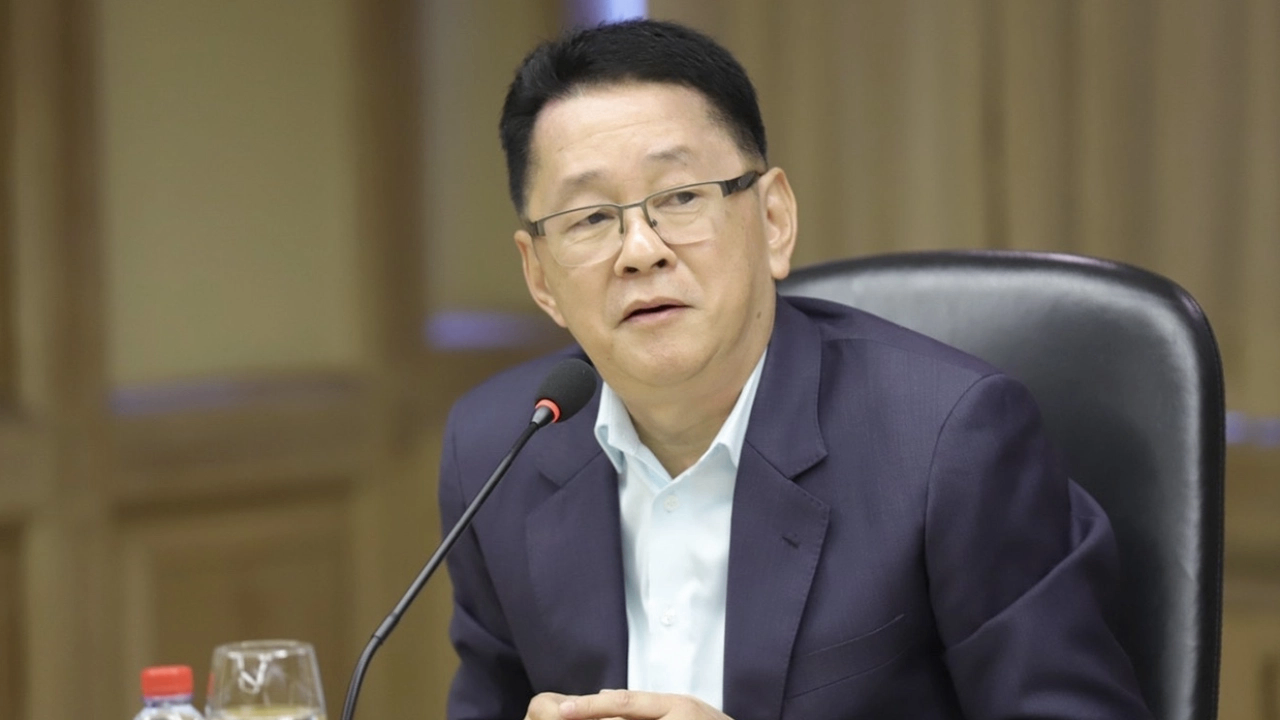Thailand Releases 2024 Digital Route to Sprint Regional Cloud Computing Center
Thailand's Ministry of Digital Economy and Society (DE) has announced a national digital transformation plan for 2024 with targeted policies in seven key areas.。
Thailand's Ministry of Digital Economy and Society (DE) has announced a national digital transformation plan for 2024, from the strategic application of digital technology to the improvement of the public service system, with plans to promote the country's digital transformation and stimulate economic development, thereby enhancing its international image and competitiveness.。
It is reported that in line with Thailand's National Artificial Intelligence Strategy and Action Plan 2022-2027, DE has formulated targeted policies in seven key areas:

1.Cloud First Policy
The "Cloud First Policy" aims to establish Thailand as the premier cloud computing hub in Southeast Asia and aims to use cloud technology to support digital government operations across all agencies.。
According to Minister Prasert Chandraruangthong, DE is advocating the widespread adoption of cloud systems to transform digital infrastructure, reset national digital security and modernization in accordance with international standards; strengthen government operations through digital technologies, improve the quality of government services and promote the use of big data。
It is expected that the initiative will provide cloud services to more than 220 departments, significantly improving the efficiency of public services, while saving 30% -50% of infrastructure spending, facilitating data exchange and improving the efficiency of big data utilization.。
The policy also aims to attract global investment in the cloud business.。Recently, the Thai government has reached business deals with a number of global technology companies, and the technology industry has fallen into the country's target vision.。
In December last year, the Ministry of Industry and Information Technology of Thailand and Huawei signed a memorandum of understanding on digital development, which aims to support the development of artificial intelligence in the country, such as industry applications, ecosystem construction and talent training.。
Prior to this, the government also signed an agreement with India's CtrlS Datacenters, as well as a 50-year lease of land in the Chonburi Digital Park 25 Rai, as part of the company's 15 billion baht investment to create a hyperscale data center in the Eastern Economic Corridor (EEC).。
2.The AI Agenda
The agenda aims to develop Thailand's artificial intelligence infrastructure, and DE will promote the construction and improvement of artificial intelligence infrastructure by introducing a national artificial intelligence service platform on the government data center cloud (GDCC).。
On the other hand, the development of the Thai Large Language Model (LLM) will become the basis of Thai artificial intelligence and is an important step for Thailand to improve its natural language processing capabilities.。LLM can process and generate human language, driving widespread applications such as machine translation, text summarization, and Thai chatbots。The tool will benefit industries such as education, healthcare and customer service to improve the efficiency and effectiveness of communication and information processing in the industry。
It can be seen that this series of measures will not only improve Thailand's artificial intelligence strength, but also improve the effectiveness of governance and supervision in this field, and promote ethical thinking in all sectors of society.。

3.One District One IT Man
In order to ensure the coordinated development of artificial intelligence in various regions of the country, the "1 District 1 IT Man" program developed by DE encourages local communities to apply emerging technologies in their work, hire professionals for scientific and technological knowledge education, and set up multiple science and technology centers in different regions.。
Specifically, the plan will improve access to digital services, enhance the quality of life of residents and connect district-level digital data through initiatives such as deploying IT staff to 878 districts, establishing 2,222 digital community centers, providing public Internet access to 24,654 villages, establishing digital youth committees, and fostering drone communities.。
4.Digital Manpower
The development of a digital workforce is also one of the goals of the Thai government this year, and DE expects to meet the country's growing demand for digital skills in a variety of ways, as well as to promote the use of digital technologies in the workforce.。
DE is said to be fully developing the digital workforce and related infrastructure, including a platform that links digital workforce data with a digital ID (credit bank); attracting global digital talent with the Global Digital Talent Visa (GDT Visa); working with the private sector to add 50,000 digital workforce; and comprehensively upgrading the digital literacy of its citizens through the Digital Youth Council.。
Minister Prasert Chandraruangthong said: "In line with the National Strategy for Artificial Intelligence 2022-2027, DE will strive to advance the skills and retraining of AI personnel and promote the use of AI in both the public and private sectors.。At the same time, ethical, legal and social factors have been incorporated into the development of artificial intelligence, and hackathons will be organized to teach artificial intelligence knowledge to small and medium-sized enterprises and the public.。"
5.Regional Broadcast (Cell Broadcast)
The initiative reduces the loss of life and property in emergencies through the implementation of a modern disaster early warning system throughout the country and the targeted delivery of disaster notifications to specific regions。
AI use cases in the public and private sectors are accelerating, with tools such as smart weather forecasting and flood risk mapping demonstrating the potential of digital technologies to save lives and improve safety.。
6.Online Threat Mitigation
In the plan, DE will use artificial intelligence to monitor, analyze and combat cyber threats. At the same time, the development of call alert applications, the development of personal data protection centers, the launch of the "Cyber Vaccine Program," and online shopping issues such as cash-on-delivery discrepancies Measures have significantly enhanced the ability to detect and respond to cyber threats。
Not only that, the department will take a variety of ways to deal with cyber threats, such as: upgrading the AOC 1441 center to use artificial intelligence to detect and prevent cyber hazards; launching a call alert application to notify risky phone numbers; and establishing a PDPC Hawkeye Center to prevent personal data leaks and solve online shopping problems.。These initiatives will not only improve cybersecurity, but also promote trust in digital technologies。

7.Enhancing Digital Competitiveness
Regarding the ethical issues and related regulations of artificial intelligence, Minister Prasert Chandraruangthong stressed that DE will do its best to solve the related problems and guard against related risks, and mentioned: The ranking of the IMD World Competitiveness Center in the United States shows that Thailand has risen from 40th in 2022 to 33rd in 2024, and has promised to advance to 30th in 2026.。
In summary, DE's 2024 digital roadmap clearly shows that the Thai government is laying the groundwork for a more competitive digital economy and will greatly improve efficiency, innovation and the overall quality of life of its citizens in the future.。
By focusing on key areas such as cloud technology, artificial intelligence, digital workforce and cyber security, Thailand will use digital technology as a medium to unleash new opportunities for economic growth and improve the quality of life and international competitiveness of its citizens.。
·Original
Disclaimer: The views in this article are from the original Creator and do not represent the views or position of Hawk Insight. The content of the article is for reference, communication and learning only, and does not constitute investment advice. If it involves copyright issues, please contact us for deletion.